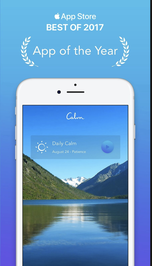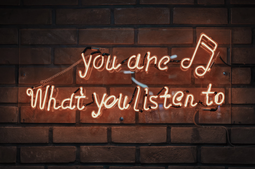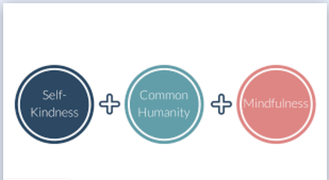Red Bank Psychological Services Blog
Our thoughts on mental health therapy, neuropsychology, and more.
|
If you are human, then you sometimes feel anxious. It's not a great feeling, but it's perfectly normal. If your anxiety is getting in the way of your daily functioning, then you should consider seeing a mental health care provider who can help you gain control over your anxious thoughts. But, if you are simply feeling a little nervous or worried, these tips from the pros may help you relax.  Anxiety happens most often to me in the middle of the night, if I awake from sleep. My thoughts can start to ricochet from minor blips to serious issues and back. The best way that I find to manage ruminations is with the app, Calm, especially its "Sleep Stories." These soothing tales and non-fiction pieces delivered by talented voice-over professionals help distract my brain from any worries and lull me right back into a deep sleep in about 20 minutes or less. For more information, and a free trial, click here. You can connect with Dayna Stein, MST, MSW, LCSW. (She has no affiliation with the creators or publishers of the app.)Stories are soothing tales read by well-known voices to help people unwind and fall into a deep sleep each evening.  As a Mom and Psychologist, managing stress and anxiety are critical in order to take care of my family and patients. My main strategy for managing anxiety is to exercise. The combination of weight training and running, works best for me. When my schedule is particularly chaotic, I slow things down by practicing brief mindfulness exercises. For example, when I am spending time with my daughter, I smell her hair, rub her arms and engage my senses while being present with her. If I am alone, I will close my eyes, take several deep breaths, and listen for the most distant sound I can hear. You can connect with Nicole Amoyal Pensak, PhD..  When I get anxious, I go right to my radio dial or my guitar. Music shifts my focus away from what's causing me to stress out. It soothes me, even if the style of the music itself isn't that soothing. Music doesn't just distract me; it also can lower heart rate and hormone levels. It triggers the brain to release endorphins, increase dopamine levels, and block pain, all which boost mood. When you are worried, turn on some tunes you love. You can connect with Lawrence Stein, PhD.  I spend a lot of time in my car, running here and there and am usually anxious about running late. Too often I am running on “auto-pilot” and arrive to where I am going with little recollection of the actual journey. Over the past few years, I have made a conscious decision to pay more attention and have more compassion for myself and others. Self-compassion has been associated with less symptoms of anxiety and with positive psychological functioning. By applying the three elements of self-compassion (Self-kindness, Common humanity, and Mindfulness), I have experienced a change in my own relationship with anxiety. Rather than struggling against the anxiety, I learned to work on reducing self-judgments, I learned that it is important to remind myself that anxiety is a part of being human, and I began to notice my thoughts and feelings more regularly - allowing them to move on without becoming attached. You can connect with Maria Nakhleh, LCSW. When I am feeling anxious, I like to use mindfulness to help me ground myself and become more attuned to my inner chatter. Mindfulness is a lot of things to different people - for me it’s having awareness of the inner chambers of my heart, body, and spirit without any judgment. On most days and especially when I have added feeling s of anxiety, I use a technique that brings consciousness to my inner-workings, reduces stress, and creates acceptance of MY present moment. It’s really simple, for just 5 minutes a day (or longer if time allows) I try to find a safe, quite place to check in with myself. Meaning - what is happening with Anna today? What is her mind telling her? What is her heart searching for? What are the bodily sensations that accompany all of this? This simple daily check-in allows me to notice and acknowledge my inner presence. If I want to cry - I cry, if I feel like giving myself a good pep talk - I do. Even if my anxiety doesn’t fully subside – checking in with myself helps me acknowledge my thoughts and emotions in the present moment and allows me to give myself more self-acceptance and love. Try this simple mindfulness practice each day and start developing a better relationship with yourself! You can connect with Anna Zonen, LCSW.
1 Comment
|
Details
AuthorsDayna Stein, MST, MSW, LCSW: Therapist, Educator, Parent, Movie Buff, & Travel Enthusiast. Archives
March 2022
Categories |
|
732-747-8818
|
316 Broad Street - Suite 1, Red Bank, NJ 07701
|